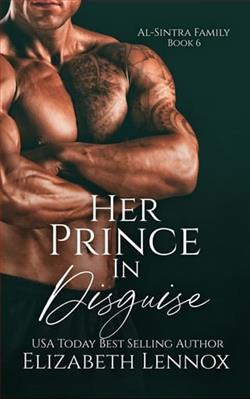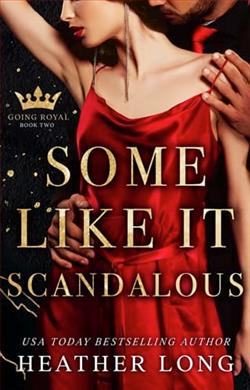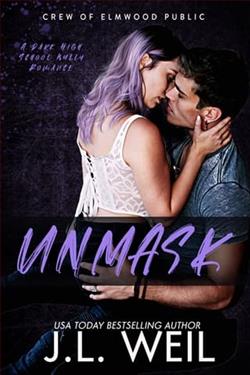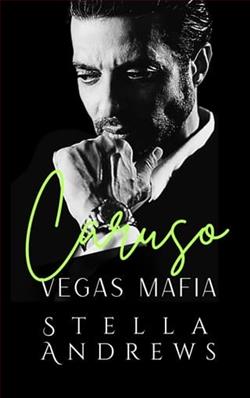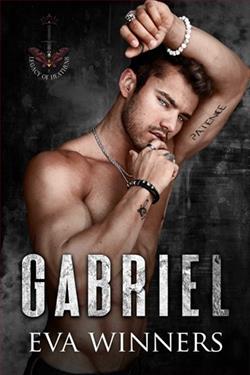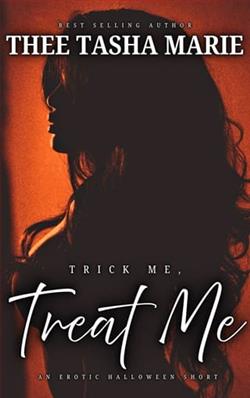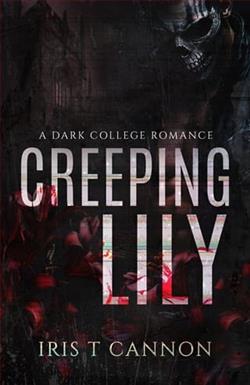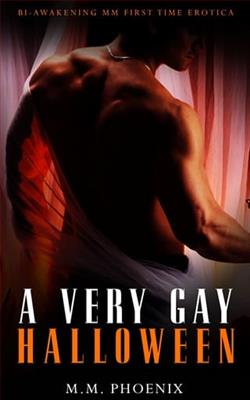Page 20 of A City of Emeralds and Envy
“He’s an intelligent scrap of fluff,” says Riordan. He nods to a large basket nearby, its contents folded within a blue-checked cloth. “One of the Fae packed some supplies for the two of you, but I’m not sure you should partake. All the food here is magically crafted from the corn the villagers grow, which is fertilized by the remains of the crows’ meals and imbued with their strange dark magic. I’ve not seen this kind of symbiosis between Fae and arcane creatures in all my years. It merits further study, but—”
“But we don’t have time,” I tell him. “We need to find Caer and get you both un-cursed.”
“True.” He sighs and speaks to Dorothy. “There will be something in the forest your pet can eat. We should go.”
Her lips press into an unhappy line, but she doesn’t protest as she picks up the basket. “Whether we eat the food or not, there might be something useful in here.”
“True.” I hesitate, scanning the quartz-paved paths that wind between the blue houses. There’s not a single Fae to be seen. “Should we thank them? Bid them farewell?”
“The only ones awake are the guards who prepared the scarecrow. The rest won’t be up for hours. Come.”
He stalks along the path. There’s a metallic clanking as he moves, and his boots ring against the stone.
Fiero whines and wriggles in Dorothy’s arms until she puts him down. The poor dog is probably starving. So am I, but after what Riordan said about the alchemized food, I’d rather wait and eat in the forest. Surely he can tell us which berries and nuts are safe.
We move through the village square where the feast was held. Not a trace of the tables, benches, or bonfire remains—just a clear space with a fountain I didn’t notice last night—a huge crow carved of ebony stone, wings outspread, spewing crystal water from its serrated beak. A shudder passes through me as we walk past it.
Riordan leads us around the triangular temple, along another winding street lined with squat blue houses, until we reach the high wall surrounding the village. The frame of the gate towers ridiculously high, almost as tall as the trees, and the double gates are ebony wood, meeting in a sharp point that mirrors the shape of the temple.
Riordan lays silver jointed fingers against the black gates. “The influence of the trees and the village’s protective charms will fade once we pass through here. Stay close to me.”
The familiar, hated sensation of helplessness rises in my chest like a diseased serpent. “We should have asked these Fae for weapons.”
“They have few of those,” Riordan says. “The Witch did not permit it, in case they should somehow break free of her control and rise up against her. Even now, freed of her thrall, I believe they prefer to continue along as they always have, with the same traditions and practices. It’s easier to succumb than to resist.”
His words weren’t directed at me, but they sting a little. Last time I was in Faerie, I resisted him for a while—but eventually I submitted. I gave him the book and yielded myself to his will. And it worked—when I finally gave in, Riordan couldn’t bring himself to hurt me.
But I submitted in another way, too—Ilethim send me home. When I found out he didn’t want me to stay, I bowed to his decision. I should have fought harder.
I’ve been blaminghimfor it, when I was at fault, too.
Riordan’s helmet turns my way. He must think I’m pondering the state of things in the Village of Crows, because he says, “It is a shame. They’ve been sitting here, consuming polluted magic, using it for nothing except to maintain their current way of life. They could do more with this piece of land—they could even purge the crows from their fields, if they would put forth the effort. But I doubt they will. The crows are a religion to them as well as a threat.”
Dorothy snorts derisively. “Religion and threat pair well together, I’ve found.”
“I’ve heard about human religions from my subjects,” Riordan says. “It is a fascinating study.”
“Not really.” She shrugs. “Weaklings need a crutch so they can hobble through the agony of life. Men who want power devise the crutch, then use it as a cudgel to keep everyone subservient.”
I don’t like her disdainful tone, but maybe she has a point. I’ve never found much use for religion—even less since I discovered Faerie was real. What shocks me more, though, is how crisply and clearly she spoke her philosophy. She has obviously learned and thought much deeper than I expected, and I’m a little jealous. How did she educate herself? And how has she hidden her true nature for so long? When I’ve seen her in passing, she has simply been my neighbor Dorothy—quiet and pretty, with unusual eyes—occasionally clumsy, good with children. The sheer depth of what she was hiding unsettles me.
I have no time to address it with her now, because Riordan is pushing open the gates. A swath of golden-green cornfield widens between the ebony doors, and winding through that cornfield is a yellow brick road.
Dorothy and I step over the threshold of the village onto the road. Riordan closes the gates and then strides ahead to take the lead, while Fiero trots at his heels. The dog seems fascinated by the shiny man of metal, though he startles back if Riordan moves too suddenly.
“We have to hurry,” says Riordan. “The crows will be rising soon, and the scarecrow won’t keep them busy long. There’s not much meat on the boy’s bones.”
“Wait…” A cold sweat of alarm breaks out on my skin—terror and dread. I walk faster, coming abreast of him. “A boy? What are you talking about?”
“The scarecrow.” His helmet angles toward me. “You heard them discussing it, yes? Not a scarecrow in the traditional sense, but a sacrifice to the crows, to distract them.”
“I heard that part, but I didn’t think it would be aperson.”
“What did you think it was?”
“I don’t know—a cow? Some animal?”
“They don’t keep livestock. No, they breed much faster than other Fae, because of the crows’ magic, so the sacrifice is always one of their own—usually a troublemaker. Someone who doesn’t fit into their society. In this case, it’s a young Fae whom the East Witch was never able to enthrall—he was immune to her power, despite not being part of the royal bloodline.”








